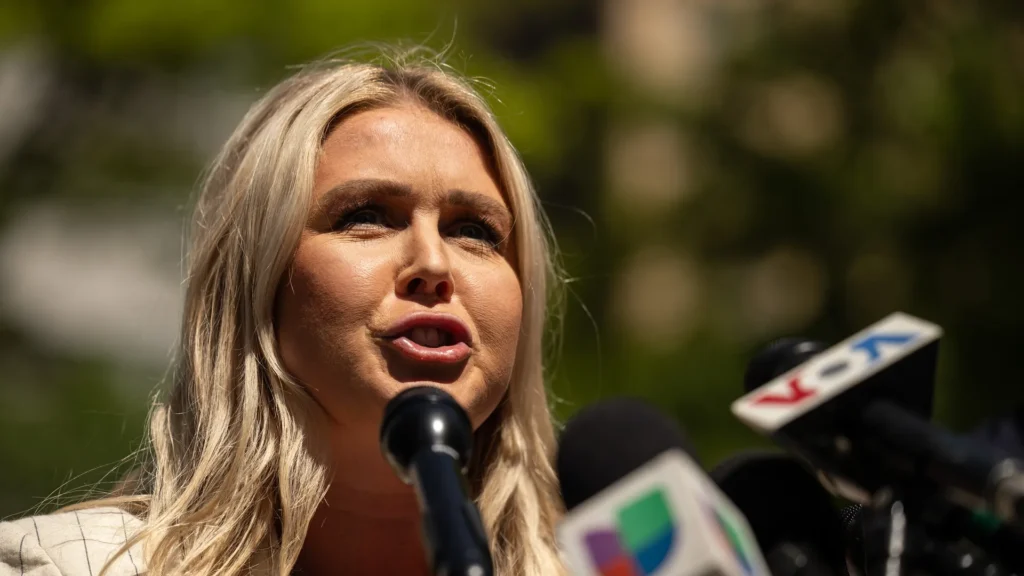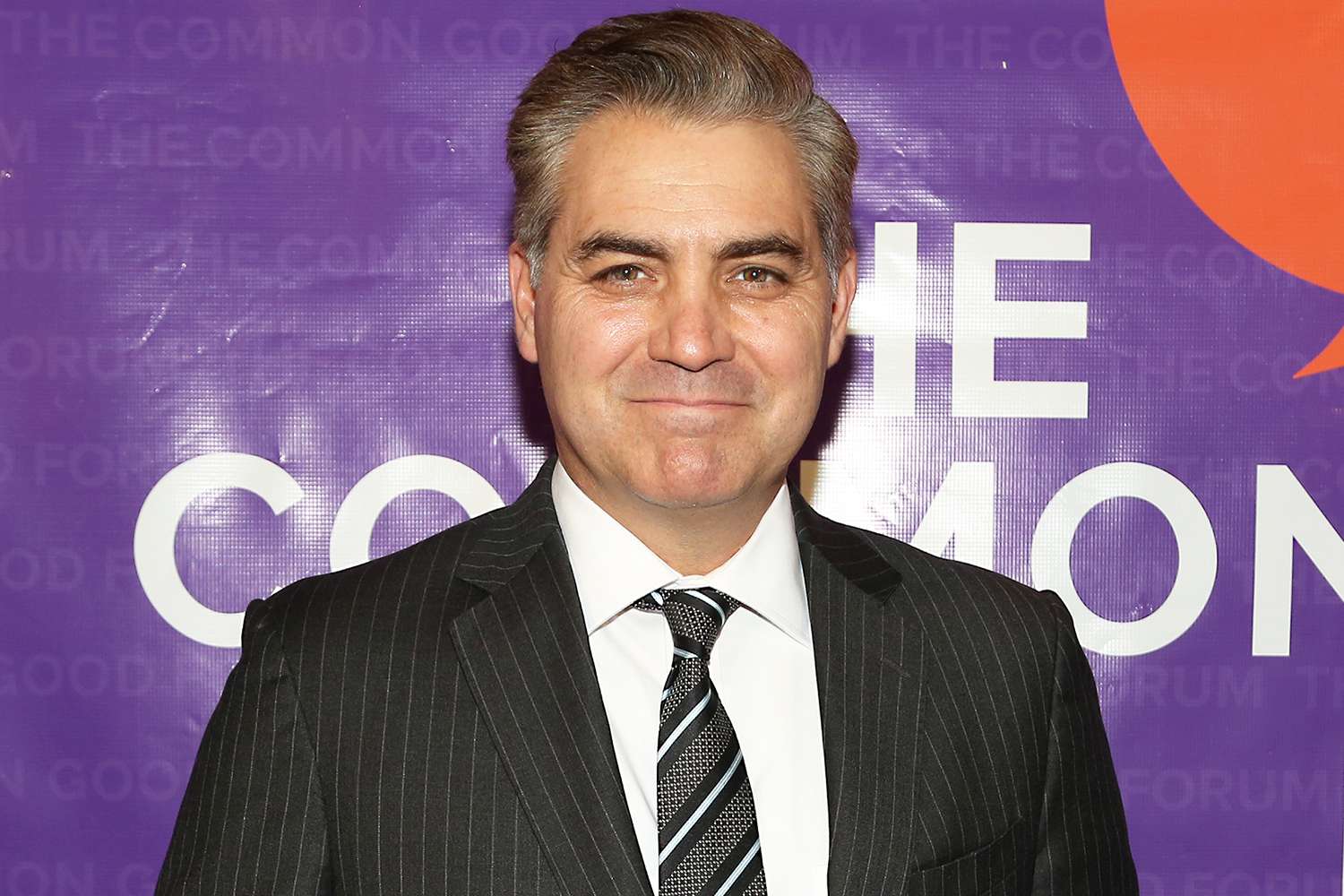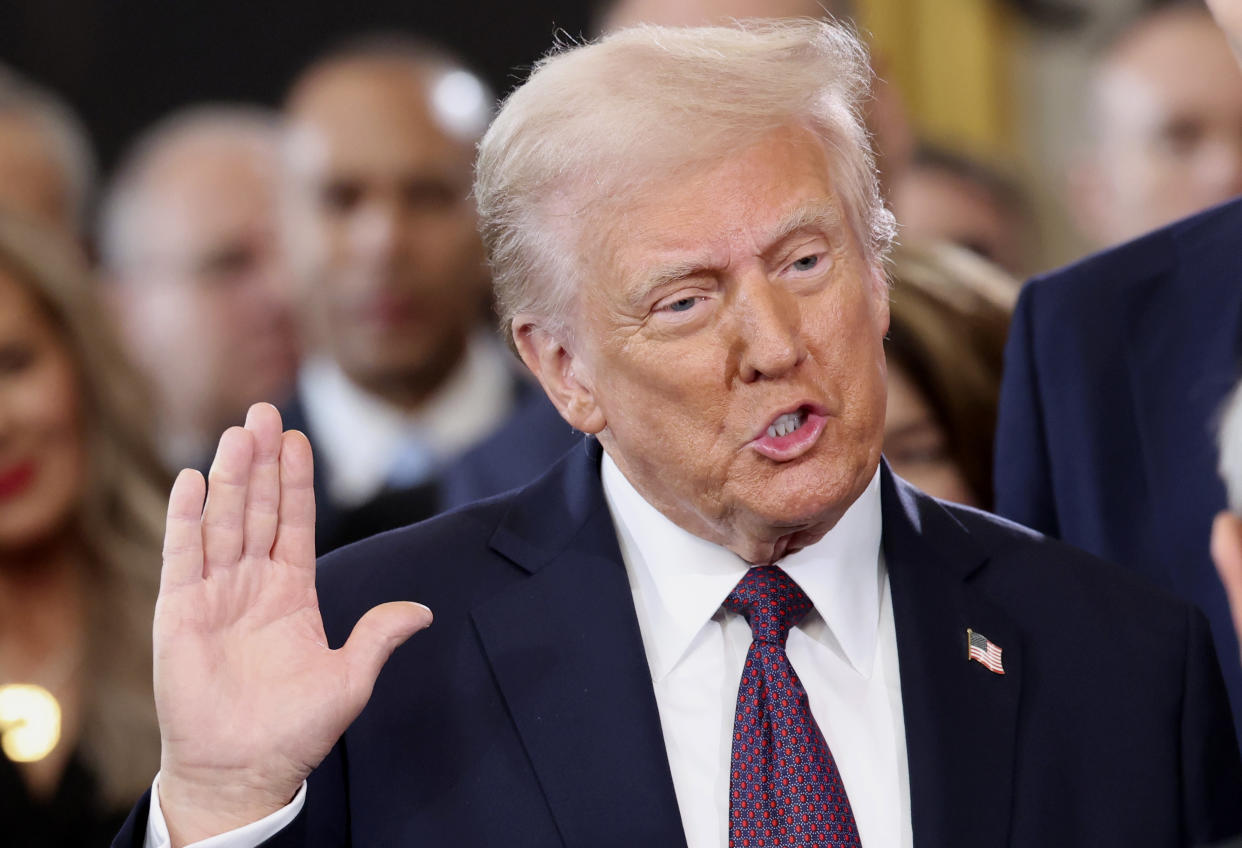
Karoline Leavitt : Discover the journey of Karoline Leavitt, who at 27, became the youngest White House Press Secretary under President Donald Trump’s second administration.
Table of Contents
Karoline Leavitt has recently made history as the youngest individual to assume the role of White House Press Secretary at the age of 27. Her appointment under President Donald Trump’s second administration marks a significant milestone in American political history.
Early Life and Education
Born on August 24, 1997, in Atkinson, New Hampshire, Karoline Leavitt was raised in a Catholic family. She attended Central Catholic High School, where she demonstrated leadership as the captain of the varsity softball and field hockey teams. Leavitt pursued higher education at Saint Anselm College, earning a bachelor’s degree in Politics and Communications. During her college years, she interned at Fox News and the White House Office of Presidential Correspondence, experiences that ignited her passion for media and politics.
Early Career and Political Involvement
Leavitt’s career trajectory includes significant political and media experience. She served as an assistant press secretary during President Trump’s first term, working under then-Press Secretary Kayleigh McEnany. Following this role, she became the communications director for Republican Congresswoman Elise Stefanik. In 2022, Leavitt ran for the U.S. House of Representatives in New Hampshire’s 1st district, winning the Republican nomination but losing in the general election to incumbent Chris Pappas.
Role in Trump’s 2024 Campaign
In January 2024, Leavitt was appointed as the national press secretary for Donald Trump’s 2024 presidential campaign. She became a prominent spokesperson, appearing on various news channels to defend Trump and articulate campaign positions. Her energetic and combative communication style garnered attention, and she was recognized for her polished media engagements.
Historic Appointment as White House Press Secretary
On November 15, 2024, President-elect Trump announced Leavitt as his choice for White House Press Secretary for his second term. This appointment made her the youngest individual to hold this position in U.S. history. Leavitt’s debut in the briefing room was marked by her promise to engage frequently with the media and expand access to nontraditional media figures, including podcasters and social media influencers.
Personal Life
Leavitt is married to Nicholas Riccio, a successful real estate entrepreneur. The couple got engaged on Christmas Day 2023 and welcomed their son, Nicholas Robert, on July 10, 2024. Leavitt returned to work shortly after giving birth, driven by a perceived threat to Trump.
Public Perception and Future Prospects
Leavitt’s appointment has been met with both praise and scrutiny. Her supporters commend her clear and positive communication style, viewing her as a rising star in the Republican Party. Some political analysts suggest that her charisma and communication skills could lead to future political roles, such as a gubernatorial candidacy or media opportunities post-politics.
Karoline Leavitt’s rapid ascent in American politics underscores her dedication and strategic communication abilities. As she navigates her role as White House Press Secretary, her performance will be closely watched by both supporters and critics. Her tenure may well influence the future dynamics of political communication in the United States.
Democrats React with Fury Over Medicaid Funding Confusion Karoline Leavitt
The recent confusion surrounding Medicaid funding has sparked outrage among Democrats, who accuse the current administration of jeopardizing the health and welfare of millions of Americans. A series of developments, including statements from the White House and disruptions in federal payment systems, have left many concerned about the future of vital healthcare services. Here’s a closer look at the unfolding situation, its political ramifications, and what it means for the American people.
Medicaid Funding Under Scrutiny
On Tuesday, the federal online system responsible for managing payments to programs like Medicaid was unexpectedly taken offline. Visitors to the website were met with a warning that Executive Orders related to potentially unallowable grant payments were causing delays and rejections in payment processing. This disruption has raised alarm bells across the political spectrum, with many questioning the motives and implications of this move.
White House spokeswoman Karoline Leavitt attempted to ease concerns by stating that the funding freeze is “temporary” and does not impact individual assistance programs for Americans. However, the lack of clarity on whether Medicaid would be affected has fueled widespread anxiety. The uncertainty has led to a heated political debate, with Democrats and Republicans offering starkly different interpretations of the situation.
Democratic Backlash: Accusations of Negligence
Prominent Democrats have not held back in their criticism of the administration’s handling of the issue. Oregon Senator Ron Wyden described the situation as “a blatant attempt to rip away health care from millions of Americans overnight.” He warned of potentially deadly consequences if Medicaid services are disrupted, emphasizing the importance of consistent healthcare access for vulnerable populations.
Hawaii Senator Brian Schatz echoed these concerns, highlighting the operational chaos caused by the portal shutdown. “Multiple states locked out of Medicaid portal,” he tweeted, underscoring the widespread nature of the problem. Schatz further referred to the situation as a “Trump shutdown,” accusing the administration of acting unlawfully by undermining Medicaid’s operational framework.
Republican Defense: Reassurance Amid Criticism
On the other side of the aisle, Republican lawmakers have sought to downplay the situation, arguing that Medicaid and Medicare services remain intact. Senator Josh Hawley stated that he received assurances there would be “no interruption to Medicaid or Medicare or any grant that floats to individuals.” His comments were aimed at calming public fears, though they have done little to assuage Democratic critics.
The Republican defense largely centers on the claim that the payment freeze is a temporary measure designed to ensure compliance with legal and regulatory standards. However, the lack of detailed explanations has left many wondering whether the freeze is a symptom of broader issues within the administration’s healthcare strategy.
The Broader Implications of a Funding Freeze
Medicaid is a lifeline for millions of low-income Americans, providing essential healthcare services ranging from routine check-ups to critical treatments. Any disruption in funding could have devastating consequences for individuals and families who rely on this program. The current confusion has raised several pressing questions:
- Access to Care: If payments are delayed or rejected, how will healthcare providers continue to deliver services to Medicaid recipients?
- State-Level Impact: With multiple states reportedly locked out of the Medicaid portal, how will local governments navigate this disruption?
- Public Trust: The uncertainty surrounding Medicaid funding has eroded public confidence in the administration’s ability to manage healthcare systems effectively.
These concerns are particularly acute given the ongoing challenges posed by rising healthcare costs and an aging population that increasingly depends on Medicaid and Medicare for support.
Political Ramifications
The Medicaid funding controversy has quickly become a flashpoint in the broader political debate over healthcare policy in the United States. For Democrats, it provides an opportunity to highlight what they see as the administration’s failure to prioritize the needs of ordinary Americans. By framing the issue as an attack on vulnerable populations, they aim to rally public support and pressure the administration into taking corrective action.

Republicans, meanwhile, face the challenge of defending the administration’s actions without alienating constituents who depend on Medicaid. Their response will likely focus on emphasizing the temporary nature of the funding freeze and the importance of regulatory compliance.
This political tug-of-war is playing out against the backdrop of a deeply polarized national landscape, where healthcare remains a key battleground issue. Both parties understand the high stakes involved, with the potential to shape public opinion heading into upcoming elections.
A History of Medicaid Controversies
This is not the first time Medicaid has been at the center of a political storm. Since its inception in 1965, the program has faced numerous challenges, including funding shortfalls, eligibility debates, and disputes over state versus federal control. These controversies often reflect deeper ideological divides over the role of government in providing social services.
The current situation is reminiscent of past conflicts, such as the government shutdowns that disrupted healthcare services in previous administrations. However, the scale and scope of the present confusion appear to be unprecedented, with widespread implications for both policymakers and the public.
What Happens Next?
As the situation unfolds, several key developments will determine the future of Medicaid funding:
- Clarification from the White House: Clear and detailed communication from the administration will be essential to address public concerns and restore confidence in Medicaid’s stability.
- Congressional Oversight: Lawmakers are likely to hold hearings and demand accountability for the payment freeze, seeking to uncover its root causes and prevent similar incidents in the future.
- Public Advocacy: Advocacy groups and healthcare organizations will play a crucial role in ensuring that the voices of Medicaid recipients are heard and that their needs are prioritized.
In the meantime, millions of Americans are left in limbo, unsure of how the funding freeze will impact their access to healthcare. For many, the uncertainty is more than an inconvenience—it is a matter of life and death.
Conclusion
The Medicaid funding confusion has laid bare the vulnerabilities in the U.S. healthcare system and the high stakes of political decision-making. As Democrats and Republicans clash over the issue, the ultimate priority must remain the well-being of the American people. Whether through swift action from the administration or legislative intervention, a resolution is urgently needed to protect the millions who depend on Medicaid for their health and livelihoods.
This episode serves as a stark reminder of the critical importance of clear communication, robust oversight, and unwavering commitment to public welfare in shaping healthcare policy. The road ahead may be fraught with challenges, but the stakes are too high for inaction. visit Thenewsify for more news









Leave a Reply